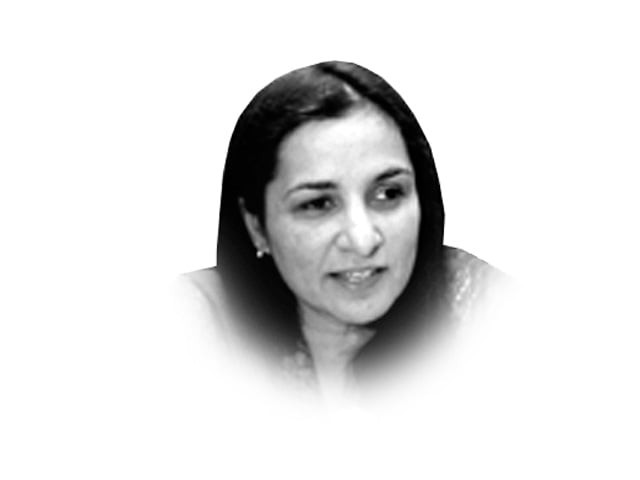Ten feet tall
We need to credit Begum Bhutto for laying down the foundations of Pakistan’s difficult struggle against...

Ten feet tall
Prolonged illness had meant that the woman who bravely and resolutely led the resistance against Pakistan’s most toxic dictatorship, who was the head of the PPP’s women’s wing and subsequently became its chairperson and a senior minister in the government, has largely been absent from Pakistan’s political narrative. Among the few known written accounts of Begum Bhutto’s role in Pakistan’s democratic politics are the ones written by the widely respected Bashir Riaz, now a chronicler of the Bhutto family.
It was this iconic figure who carved out a path of resistance and subsequently of a collective democratic struggle in the shape of the Movement for the Restoration of Democracy — something that her equally brave daughter, Benazir, followed.
Until repeated tragedy broke her and she went into exile with her daughter, Begum Bhutto remained active on the domestic and international scene. In June 1993, she led, on then Prime Minister Nawaz Sharif’s invitation, Pakistan’s delegation to the World Human Rights’ Conference in Vienna, and held her own with dignified ferocity. I was a delegate and saw her take up the cause of the Kashmiris with great conviction. In fact, she strongly chided the Foreign Office team for “trying to water down” her own text of the speech condemning Indian atrocities in the Valley. From the podium, in a hall full of delegates, Begum Bhutto shouted down the Indian delegates, who sought a right of reply to her very hard-hitting speech.
And when the Indian press raced towards her as she walked away from the podium and asked her question about Pakistan’s politics, she hit back saying “Do not try and divide us, here for the Kashmir cause we are all one.”
Begum Bhutto bore the brunt of repeated pain, of her husband’s trial and execution and finally after the violent deaths of her two young sons and subsequent intra-family pressures, Alzheimer’s pulled her away from public life. Burdened with these unbearable tragedies, it seems fate intervened with this memory-losing illness, as if to ease her pain.
Begum Bhutto and many others rose to the challenge of fighting a state that was most callous and ruthless and she came away walking tall. She has left us and our children a legacy of resistance and struggle that we will always be proud of. At the same time, we should never forget the times that she lived through because these were periods when the lives of many individuals were destroyed and when the country’s potential of a bright future was hijacked.
For Pakistan, the costs of dictatorship have been devastating. While there are many commentators who talk of the economic benefits of stable dictatorships, how do we ignore the yamounting and destabilising effect that they have on the nation? Dictatorships in Pakistan have delivered many a serious blow to democracy, derailing the one system that could hold our leaders and various state institutions accountable. Another point to note is that these dictatorships have contributed to the creation of our public narrative, which, thankfully, is now gradually being challenged.
We have to realise that the only way forward is a democratic system that allows us to hold accountable all those who are in positions of power and authority. Take the case of Zulfikar Ali Bhutto who had to make an agreement with the opposition. General Zia felt no such need because dictatorships are not held accountable. Empowered by a vindictive capitalist class, which saw itself as being wronged by Bhutto, he drove us away from what would have been a semblance of a functioning system.
Dictatorships rob us of our stars in their prime and we are left to lament them. The irony is that only now in her death are we extolling her and applauding her for what she did and endured through her life. Rising above all other divides, we need to give credit to the one woman who helped lay down the foundations of Pakistan’s most difficult and yet most principled struggle against dictatorship. She must be given her due place in Pakistan’s democratic history.
This is why she should make all of us feel ten feet tall.
Published in The Express Tribune, October 25th, 2011.












COMMENTS
Comments are moderated and generally will be posted if they are on-topic and not abusive.
For more information, please see our Comments FAQ